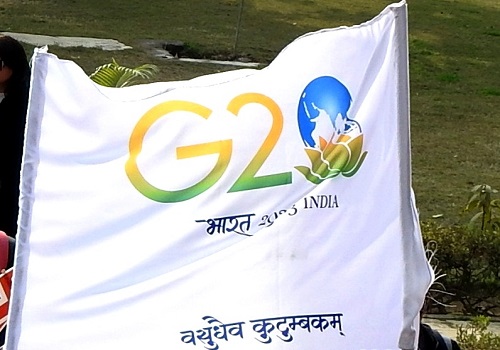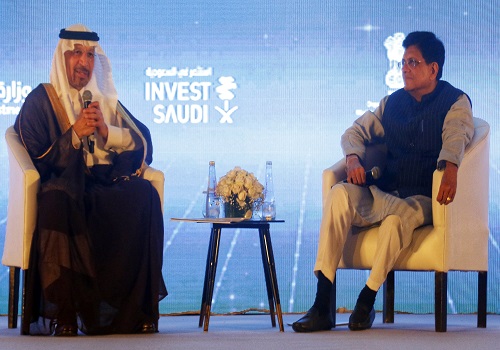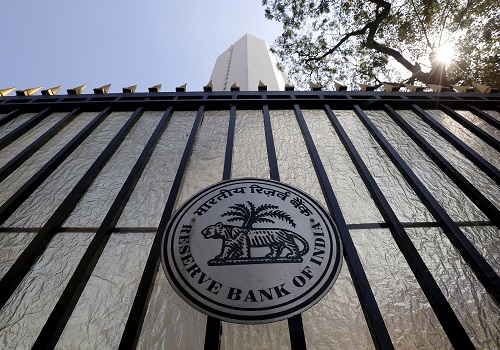India's G20 Diplomacy: A Comprehensive Analysis By Amit Gupta, Kedia Advisory

Follow us Now on Telegram ! Get daily 10 - 12 important updates on Business, Finance and Investment. Join our Telegram Channel
https://t.me/InvestmentGuruIndiacom
Download Telegram App before Joining the Channel
The G20 Summit held under India's presidency has left an indelible mark on the global stage. With the participation of leaders from the world's major economies, this summit witnessed unprecedented unity and consensus, setting the stage for significant international developments. In this article, we explore the key takeaways and accomplishments of India's leadership at the G20 Summit, shedding light on the nation's contributions to global governance and cooperation. The most notable achievement of the G20 Summit was the unanimous passage of all 83 paragraphs in the declaration. Remarkably, there was a 100 percent consensus among participating nations, including China and Russia, without any footnotes or Chair's Summary. This remarkable unity demonstrated the collective resolve of the international community to address pressing global challenges. India's role as a unifying force in this accomplishment cannot be understated.
The G20 Summit provided a platform for leaders to address critical global issues. Through careful negotiation and diplomacy, India managed to bridge differences and secure unanimous agreement on the declaration. This unity underscored the importance of collective action on matters of global significance, from climate change to economic cooperation. In a significant move towards environmental sustainability, India launched the Global Biofuels Alliance during the summit. This initiative, unveiled in the presence of influential leaders such as US President Joe Biden, Brazilian President Luiz Inacio, Argentine President Alberto Fernández, and Italian Prime Minister Giorgia Meloni, aims to foster collaboration among leading biofuel producers and consumers. Brazil, India, and the United States, being at the forefront of biofuel production and consumption, are set to lead the way in this alliance. The Global Biofuels Alliance represents a significant step towards a more sustainable energy future. By bringing together key players in the biofuel sector, this initiative seeks to advance research, development, and production of biofuels as a cleaner alternative to traditional fossil fuels. India's leadership in launching this alliance reflects its commitment to environmental protection and the global transition to renewable energy sources.
One of the pivotal developments during the G20 Summit was the announcement of the India-Middle East-Europe Economic Corridor (IMEE EC). This ambitious project holds the promise of enhanced connectivity and economic integration between Asia, West Asia/Middle East, and Europe. Comprising two integral segments - the East Corridor connecting India to West Asia/Middle East and the Northern Corridor connecting West Asia/Middle East to Europe - the IMEE EC is poised to transform regional and global trade dynamics. The IMEE EC represents a visionary approach to enhancing economic cooperation across continents. It envisions the seamless movement of goods, services, and people, fostering economic growth and development. This corridor aligns with India's broader foreign policy objectives, promoting regional stability and economic prosperity through connectivity and collaboration. Italy's enthusiastic participation in these initiatives further underscores their significance. The involvement of European nations in the IMEE EC highlights the potential for stronger economic ties between India, the Middle East, and Europe. It also signifies a shared commitment to building infrastructure that supports trade and development on a global scale.
India's presidency of the G20 Summit was marked by a historic inclusion - the African Union became a permanent member of the Group of 20 (G20). This landmark decision acknowledges the growing influence and importance of African nations in shaping global policies and addressing common challenges. The inclusion of the African Union in the G20 represents a significant shift in the composition of this influential international forum. It recognizes the role of African countries as key stakeholders in the global economy and geopolitics. India's role in facilitating this inclusion demonstrates its commitment to a more inclusive and equitable world order. The G20 Summit's emphasis on inclusivity and diversity reflects the changing dynamics of global governance. By welcoming the African Union as a permanent member, the G20 acknowledges the need to address the unique challenges and opportunities faced by African nations in the 21st century.
Amidst significant differences among member nations regarding the Russia-Ukraine conflict, India displayed remarkable diplomatic acumen. The G20 Summit managed to adopt a consensus declaration that called for an end to the "global trust deficit." Furthermore, it emphasized the full and timely implementation of an UN-brokered deal allowing Ukraine to export its grain via the Black Sea. India's ability to navigate these contentious issues and foster consensus highlights its diplomatic prowess. The Russia-Ukraine conflict has been a longstanding source of tension in international relations. The G20 Summit provided a crucial platform for leaders to address this issue and seek common ground. India's role in facilitating a consensus declaration underscores its commitment to maintaining global peace and stability. The G20's call for the full and timely implementation of the UN-brokered deal regarding Ukraine demonstrates the importance of international cooperation in resolving complex geopolitical conflicts. India's diplomatic efforts at the summit contributed to building bridges and fostering dialogue among nations with differing views on this matter.
Global leaders at the G20 Summit reaffirmed their commitment to establishing a fair, sustainable, and modern international tax system tailored to the needs of the 21st century. This commitment underscores the G20's dedication to addressing critical international financial issues and ensuring tax fairness across borders. International taxation has become a pressing issue in a globalized world. The digital economy, multinational corporations, and cross-border transactions have presented challenges to traditional tax systems. The G20's commitment to modernize international taxation reflects its recognition of the need for a fair and equitable framework that addresses these challenges. The G20 Summit's focus on international taxation reforms is particularly significant given the economic impact of the COVID-19 pandemic. Governments around the world are grappling with the economic fallout of the crisis, making it imperative to ensure that multinational companies pay their fair share of taxes. India's active involvement in this effort demonstrates its commitment to global economic stability and equity.
The G20 declaration unveiled a vision of a technologically advanced future, with a strong emphasis on responsible artificial intelligence and digital public infrastructure. Additionally, the summit placed a significant focus on addressing climate change. Major economies pledged to phase down fossil fuel power generation, with a target of tripling global renewable energy capacity and achieving peak emissions before 2025. The G20's emphasis on technological advancements reflects the importance of innovation and digitalization in the modern world. India, with its vibrant technology sector and expertise in digital innovation, is well-positioned to contribute to this vision. The commitment to responsible artificial intelligence underscores the need for ethical and accountable development in this rapidly evolving field. The focus on climate change at the G20 Summit is particularly significant in the context of the global climate crisis. The world is facing the urgent challenge of mitigating climate change and transitioning to sustainable energy sources. India's commitment to phasing down fossil fuel power generation aligns with its national efforts to reduce carbon emissions and promote clean energy solutions. The pledge to triple global renewable energy capacity and achieve peak emissions before 2025 represents a critical step towards addressing climate change. These ambitious goals demonstrate the G20's recognition of the urgency of the climate crisis and the need for decisive action. While Western countries proposed a more ambitious target of tripling renewable energy capacity by 2030 and reducing greenhouse gas emissions by 60% by 2035, India's role in shaping this commitment demonstrates its commitment to environmental sustainability and global cooperation. India's approach balances the imperative of addressing climate change with the need to ensure economic growth and energy security for its citizens.
Under India's presidency, the G20 Summit achieved an astounding 73 outcomes or lines of effort, alongside 39 annexed presidency documents, totalling 112 in all. This remarkable achievement is the highest number of outcomes and presidential documents in G20 history, surpassing previous presidencies by a substantial margin. It reflects India's dedication to driving substantive change and progress on the global stage. The record number of outcomes from the G20 Summit underscores India's proactive approach to global governance. By addressing a wide range of issues and fostering consensus on multiple fronts, India has demonstrated its commitment to making a meaningful impact on the world stage. The outcomes from the summit cover areas as diverse as economic cooperation, environmental sustainability, and international taxation reforms.
In conclusion, India's presidency of the G20 Summit was marked by remarkable achievements and breakthroughs on various fronts. From fostering unprecedented unity in the declaration to launching initiatives for environmental sustainability and economic integration, India played a pivotal role in shaping the global agenda. These accomplishments underscore India's growing influence in international diplomacy and its commitment to addressing pressing global challenges.
As the world faces complex and interconnected challenges, India's leadership at the G20 Summit serves as a testament to the nation's ability to navigate diplomacy and promote cooperation on a global scale. The achievements of the summit highlight the potential for collective action and international collaboration in addressing the most pressing issues of our time. India's contributions at the G20 Summit have set a positive precedent for future global governance and cooperation, reflecting the nation's commitment to a more inclusive, equitable, and sustainable world order.




















